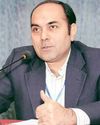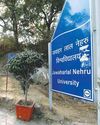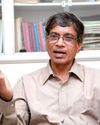The telecom regulator may soon propose a simple regulatory framework for cloud computing

India may not take a heavy-handed approach in regulating cloud computing. The telecom regulatory authority of India (TRAI) is expected to submit its recommendations on cloud computing to the department of telecommunications (DOT) in the next couple of months, says an official aware of the matter. in its submission, the regulator is considering industry-friendly rules governing cloud technology – in line with the goals of the national telecom policy (NTP), 2012, which envisions India as “a global leader in the development and provision of cloud services”.
The TRAI and the ministry of electronics and information technology (MEITY) are the two government bodies that have been working in parallel to create an enabling environment for cloud computing for the last five years. But the two have not been working in tandem. Both are working separately on cloud computing framework, each with little or very less communication with the other, creating confusion in the industry and among users.
As per the 2012 telecom policy, the government proposes to take “new policy initiatives to ensure rapid expansion of new services and technologies at globally competitive prices by addressing the concerns of cloud users and other stakeholders”.
In 2012, the DOT had written to TRAI seeking its views on issues around cloud computing such as interoperability, security, quality of service and industry incentive. Four years later, in June last year, the regulator issued a consultation paper on cloud computing, requesting feedback on a set of 21 questions. various industry associations, including NASSCOM and the cellular operators association of India (COAI), had appealed against heavy-handed regulation in their submissions to the TRAI.
Bu hikaye GovernanceNow dergisinin August 15, 2017 sayısından alınmıştır.
Start your 7-day Magzter GOLD free trial to access thousands of curated premium stories, and 9,000+ magazines and newspapers.
Already a subscriber ? Giriş Yap
Bu hikaye GovernanceNow dergisinin August 15, 2017 sayısından alınmıştır.
Start your 7-day Magzter GOLD free trial to access thousands of curated premium stories, and 9,000+ magazines and newspapers.
Already a subscriber? Giriş Yap

the trump phenomenon
how the 2016 election exposed the us underbelly.

chinnamma is not amma
sasikala may have become the leader of the aiadmk, but she is a far cry from j jayalalithaa, who towered over tamil nadu politics like a colossus.

sakshi malik
sakshi malik is the first indian female wrestler to bag an olympic medal. the 24-year-old comes from mokhra village of rohtak, haryana. she came into the limelight as an international wrestler after she won bronze in the junior world championship in 2010. then, she went on to win silver in the commonwealth games in 2014 and a bronze at the asian wrestling championships in 2015. after rio olympics, malik was conferred india’s highest sporting honour – the rajiv gandhi khel ratna. she is also the brand ambassador of the beti bachao, beti padhao campaign in haryana.

Across The Threshold
A social media campaign aims to bridge gaps between communities by urging people to visit ‘people unlike us’

'How Can An Insurance Firm Promote Death?'
Dr Pankaj Chaturvedi, head and neck cancer surgeon at the Tata Memorial hospital in Mumbai, is a leading antitobacco activist. He joined hands with Sumitra Hooda Pednekar and others to file a PIL in the Bombay high court earlier this year, questioning the staterun insurance firm LIC’s investments in a leading cigarette-maker company. Edited excerpts from an interview with Geetanjali Minhas:

The Wolf And The Lamb
Social injustice and the fate of the university

"Young Dalit Leaders Have Age, Situation On Their Side"
How do you see the rise of the Bhim Army in Uttar Pradesh?During the last assembly elections in UP, it was a common consensus among many [dalit leaders] that we’d give one more chance to Mayawati.

Timely Delivery
A veteran bureaucrat explains how to complete government projects without time and cost overruns.

Cauvery Water Dispute
India’s leading water expert and president of the South Asia Consortium for Inter disciplinary Water Resources Studies, S Janakarajan, wonders why Chennai, a city that receives 1,250 mm rainfall, is called a thirsty city and goes on to explain to Shivani Chaturvedi what went wrong among the southern states that led to a water-war like situation. But, he warns that such a scenario will keep occurring if the government does not come up with a lasting solution.

Case Against Cash
Can you imagine a day without cash?